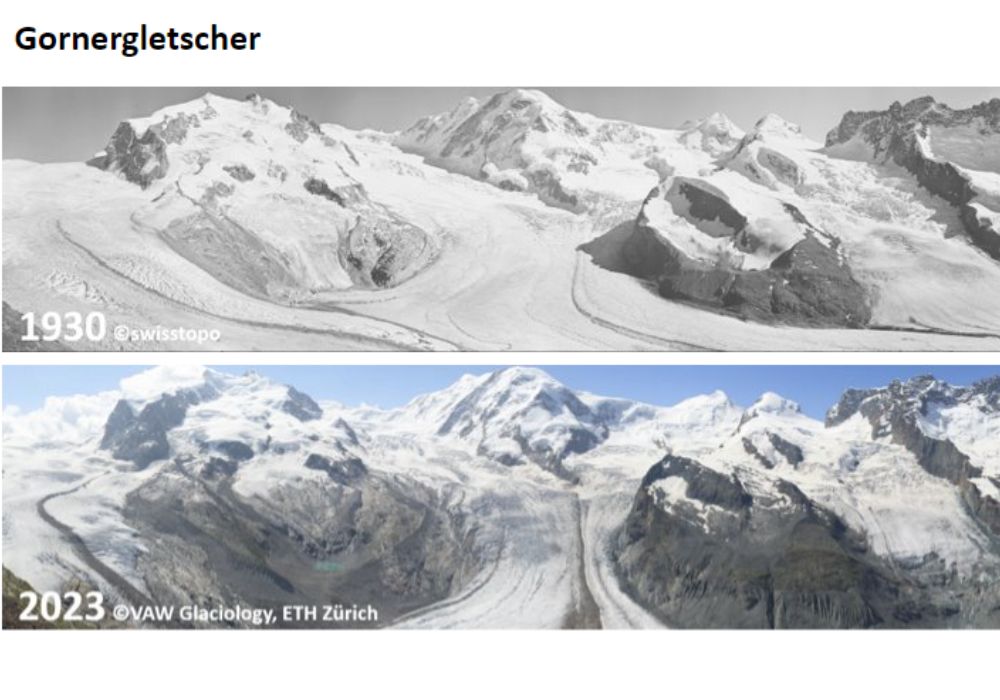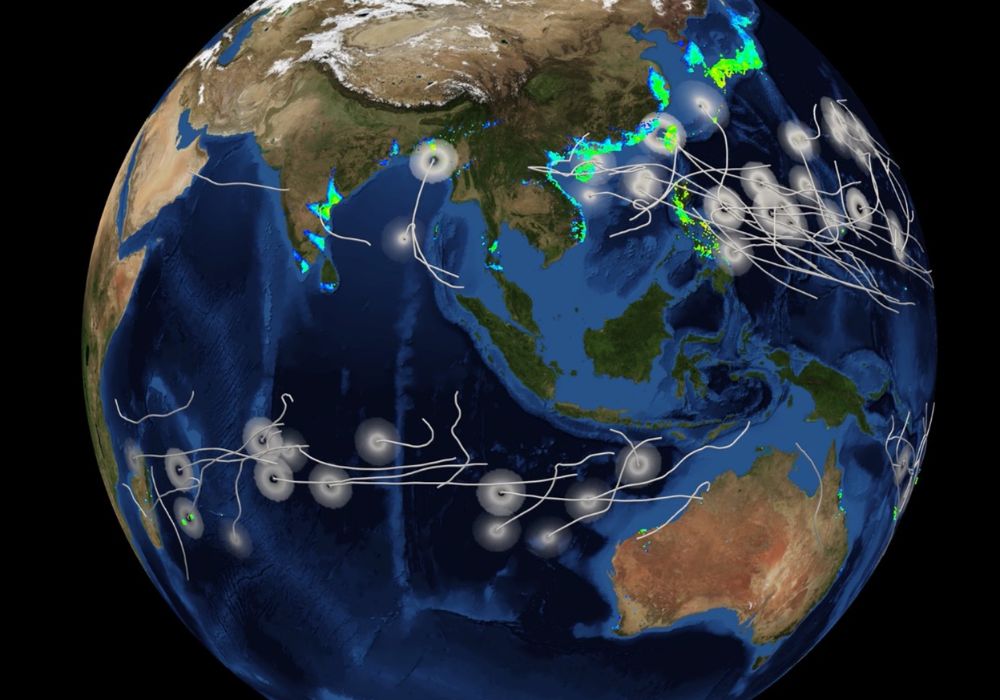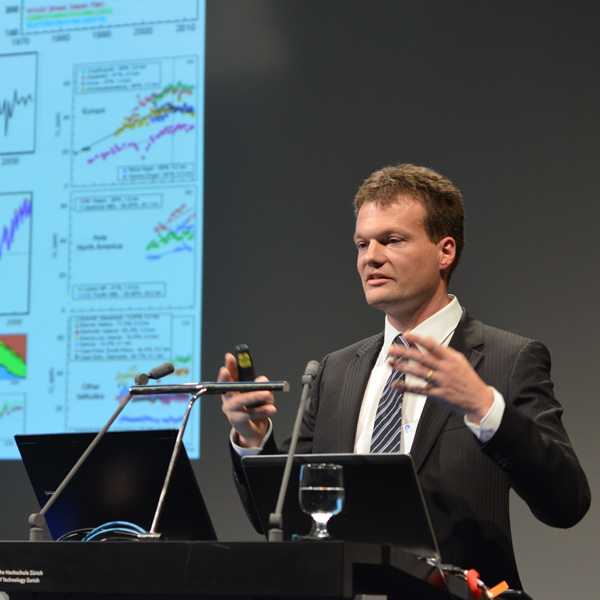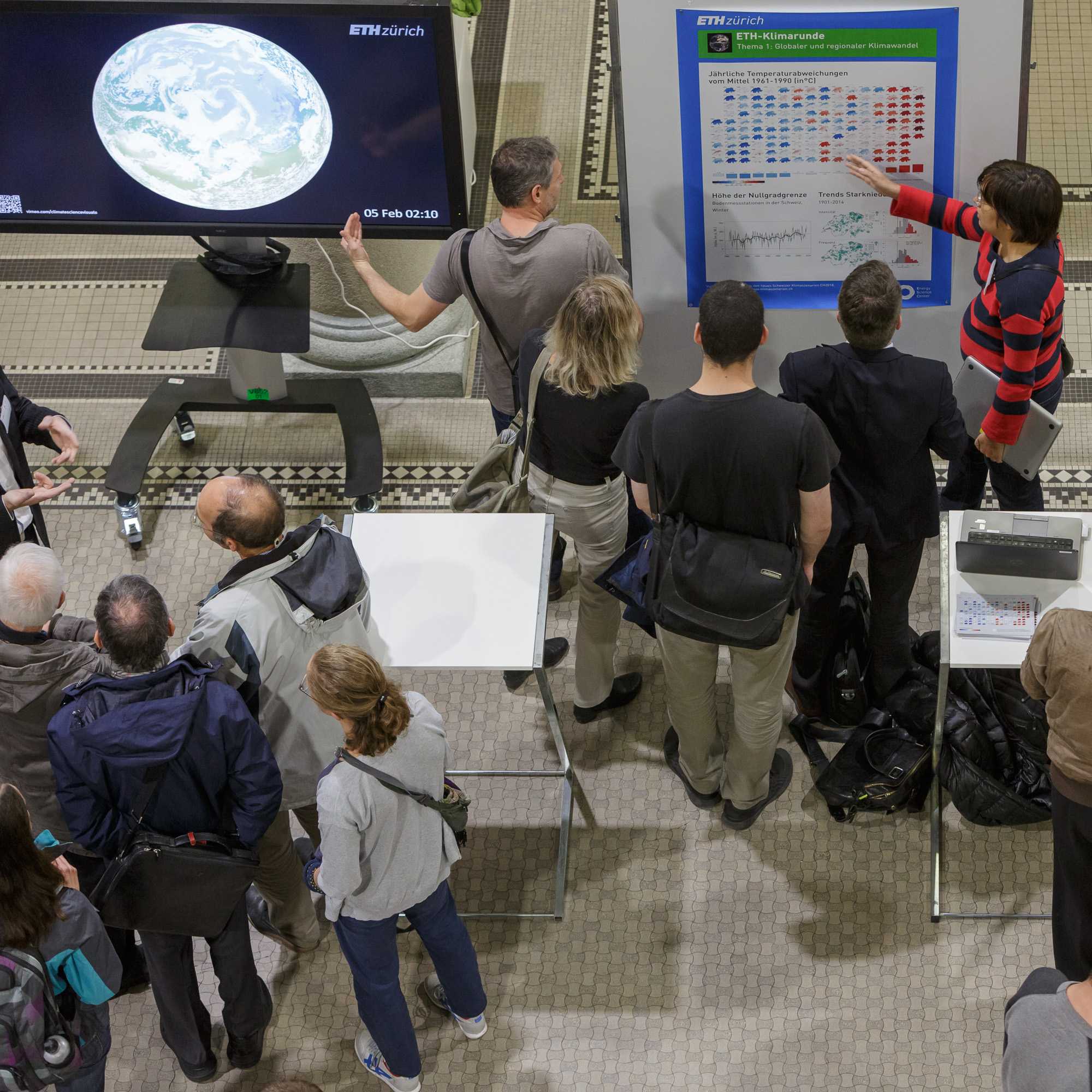Goal 13: Climate Action
Take urgent action to combat climate change and its impacts
Climate change is a key challenge with regard to sustainable development. The warming of the earth’s atmosphere threatens the livelihoods of large sections of the population in less developed countries, while infrastructure and certain economic sectors in particular are vulnerable to the risks of climate change in developed regions. Goal 13 calls on countries to incorporate climate protection measures in their national policies and assist each other in responding to the challenges at hand. Furthermore, Goal 13 advocates strengthening resilience to climate-related natural disasters and reaffirms the commitment undertaken by developed countries to mobilise each year USD 100 billion jointly from all sources by 2020 to help developing countries adapt to climate change.
Source: www.eda.admin.ch/agenda2030 (edited)
Contributions of ETH Zurich (examples)
Within the framework of its core areas of research, education, campus and dialog with society, ETH Zurich contributes to Goal 13, for example, by the following activities:
Tracing links from distant glaciers to everyday life

The Laboratory of Hydraulics, Hydrology and Glaciology (VAW) conducts in-depth research into glaciers, highlighting the significant ties between distant glaciers and global environmental impacts. Their research spans understanding large-scale glacier dynamics and their effects on water resources, sea-level rise, and biodiversity. Additionally, they carry out intricate studies in glaciology, exploring glacier movement, water flow, and more. The team collaborates with other universities for continuous glacier monitoring and conducts contract research to answer glacier-related questions for different stakeholders. Glaciers play a pivotal role in water availability and safety. The looming threat of sea-level rise poses challenges, especially when considering that over 200 million people live within 1 meter above sea level. While many may not directly interact with snow and ice, their changes resonate globally. It's crucial to shift towards sustainability to protect the planet. Read more here.
The financial barriers to climate action

The Climate Finance and Policy Group delves into the complexities surrounding financial barriers in climate action. Recognizing that the shift to low-carbon technologies such as renewables requires significant investment, the team studies how public policy influences this transition, be it moving from fossil fuels to renewable sources or adopting negative emission technologies. Central to their research is understanding the role of financial institutions, from banks to pension funds, in accelerating change. The research underscores the need for robust public policies to mobilize investments, emphasizing that technological challenges aren't the primary hindrance, but rather the absence of supportive institutional structures. For meaningful progress towards the Paris Agreement and the Sustainable Development Goals, there is an urgent call to boost clean energy investments, especially in the Global South. Read more here.
Planning for losses from climate change

ETH Zurich presents CLIMADA, an innovative open-source software crafted to evaluate the economic consequences of climate change. Utilizing advanced probabilistic modeling, CLIMADA estimates the ramifications of extreme weather conditions in our evolving climate. It gauges current risks and predicts future damages, considering socio-economic and climatic changes. It also highlights potential risk reduction through different adaptation measures. The software's comprehensive modeling assesses impacts ranging from infrastructural damages to ecosystem disruptions. Aimed at aiding politicians, businesses, and various stakeholders, CLIMADA serves as a robust, scientifically-backed tool for climate adaptation decisions. Recognizing the escalating urgency, the software's enhancements will soon integrate multi-hazard risk predictions and long-term natural hazard effects on global ecosystems. Emphasizing the unpredictability of future climate risks, the message is clear: rely not on past patterns, but anticipate unprecedented natural threats in all future planning. Read more here.
World-Class Climate Research
ETH Zurich carries out world-leading climate research and education, for example at the Center for Climate Systems Modeling (C2SM), a competence center based at ETH Zurich; through the Environmental Physics Group; the Group for Sustainability and Technology (SusTec); or the Biogeoscience Group.

Studying Climate Change
ETH Zurich prepares students for the diverse climate change tasks in science and practice through various degree programmes, including the Master in Atmospheric and Climate Science and the Master in Environmental Sciences.
Dialog With Society
With the Zukunftsblog as well as through various public events such as the ETH-Klimarunde (only available in German) or the Energy Week @ ETH (only available in German), ETH Zurich fulfils its responsibility to inform the public regularly about the consequences of climate change as well as to enter into dialogue on the challenges of climate change and possible approaches to solving them.
Lived Sustainability on Campus
Sustainable Mobility Is Key Priority
In order to promote sustainable mobility at ETH Zurich and thereby reduce its CO2 emissions and energy consumption, ETH Zurich launched the Mobility Platform, which focuses on campus mobility and business travel. To this end, it coordinates ongoing activities and initiates new projects. Air travel, in particular, is the cause of a significant proportion of ETH Zurich’s CO2eq emissions, which is why the school management has initiated a “bottom-up” project to reduce flight emissions. This new approach is scientifically accompanied by a doctoral project funded by ETH Zurich.


